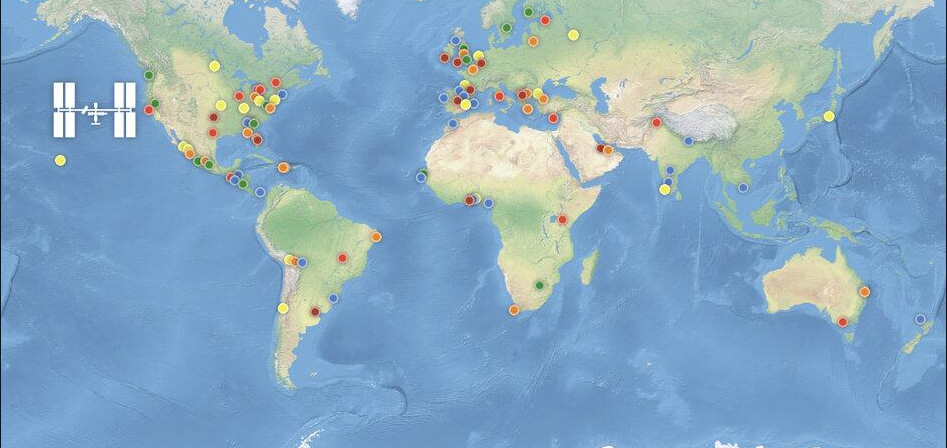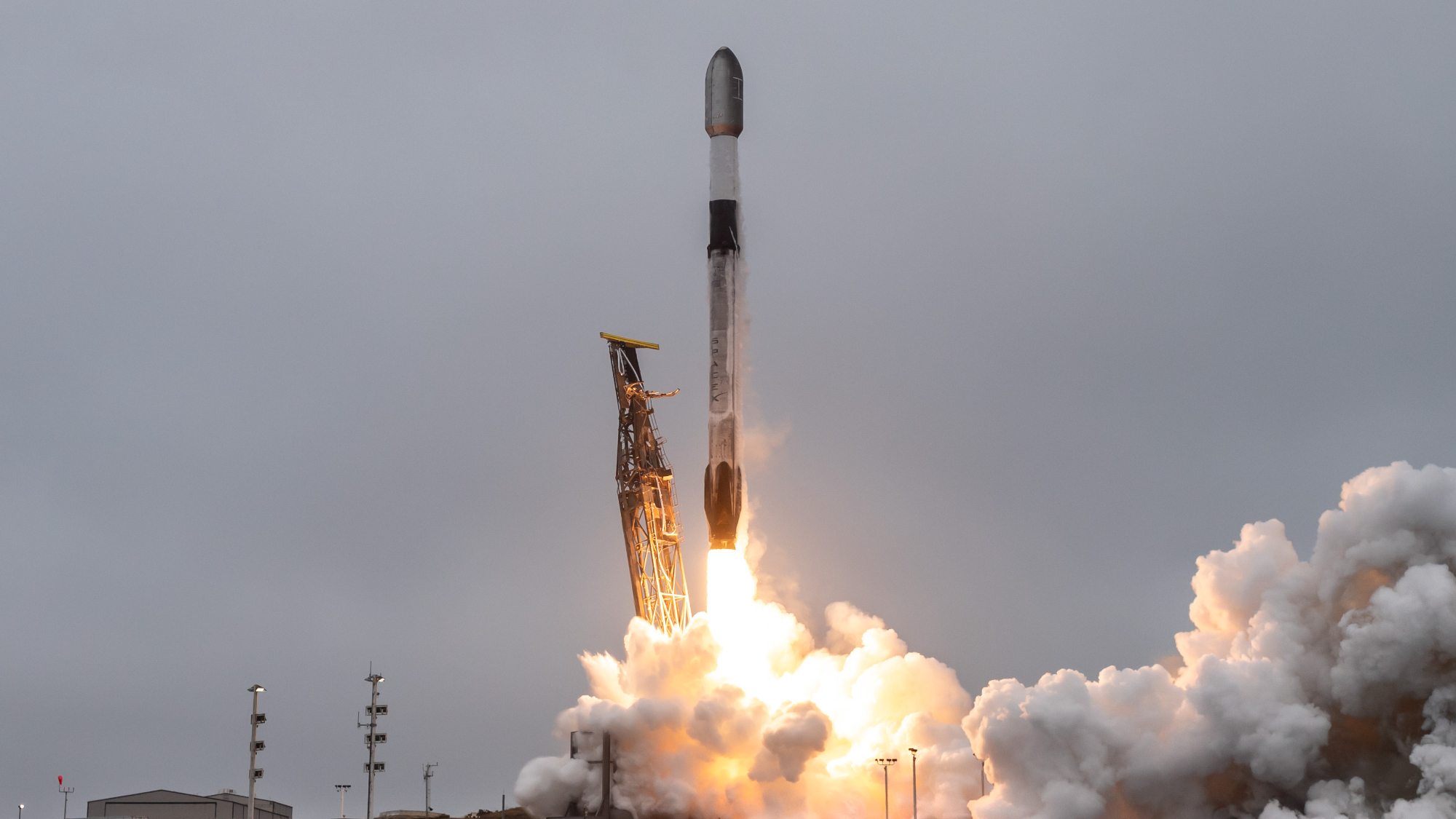
Why Entrepreneurs and Citizen Scientists Hold the Key to Saving the World

Mike Caprio, community organizer at StartupBus and co-organizer at Space Apps NYC (global mainstage 2014 for the NASA International Space Apps Challenge), contributed this article to Space.com's Expert Voices: Op-Ed & Insights.
We live in an age of wonders. All around us, science and technology advance rapidly, creating tremendous new opportunities. Inexpensive and powerful hardware, software and communications tools are making new forms of mass publishing and mass collaboration possible — in turn, creating new industries, disintermediating giant corporations (i.e., removing the "middle man") and destabilizing governments that do not represent their citizens.
We also happen to live during an extraordinarily dangerous and precarious time in history. As a species, we face existential threats from within and from without that grow in number and danger every day, ranging from the effects of human-induced climate change and myriad societal dysfunctions to external environmental threats from near-Earth object impacts, catastrophic natural disasters or epidemic diseases.
Consider the nuclear disaster in Okuma, Fukushima, Japan, at the Daiichi power plant in 2011. An earthquake, followed by a tsunami, brought about the worst nuclear incident in decades, and has adversely affected hundreds of thousands of lives and contaminated a huge swath of the environment to a still largely unknown degree. Though corruption and bad safety practices by government and corporation alike were largely to blame for this tragedy, it fell to others, mainly individuals acting on their own, to deal with the consequences.
And that's exactly what happened: People who were concerned about their loved ones and about long-term effects worked together to supply victims of the disaster with radiation detectors and to generate mapping data to guarantee their safety. That work led people to organize further, raise funds, make plans and recruit hundreds of volunteers to create the organization known as Safecast. This global project works to empower people with data, primarily by mapping radiation levels and building a sensor network, enabling people to both contribute and freely use the data collected.
People describe phenomena like this with the term "crowdsourcing." But this is too general and impersonal a word to capture the close-knit (yet decentralized) collaborative communities and movements that are forming every day, all over the world, as a direct result of people being able to easily find and connect with each other for common causes. And I speak from direct, personal experience with this sort of thing.
My life changed the day I joined another such grassroots community — the global organization of innovators known as StartupBus. On the surface, StartupBus is a group that promotes entrepreneurship and holds inspirational hackathon competitions on moving buses … but that is the least of what the group does. StartupBus is really all about connecting and empowering people so that they can change the world for the better. It was my work in this organization that led me to learn about and work on the NASA International Space Apps Challenge hackathon.
Get the Space.com Newsletter
Breaking space news, the latest updates on rocket launches, skywatching events and more!

Fellow StartupBus members asked me to find another hackathon that we could all participate in, and I quickly discovered Space Apps (and, coincidentally, was connected to its NASA organizers by one of the early members of Safecast, Aaron Huslage). I then co-organized the first year of the event in New York City, and our StartupBus members joined in, armed with their expertise in working together to quickly hack solutions to problems.
We set up the Space Apps NYC site in a matter of weeks, and we had only 40 attendees — but those few passionate folks made incredible progress in just 48 hours. They built systems that could access and display exoplanet data from the Kepler telescope; send text messages to alert people when the International Space Station was above them; and inform remote, rural farmers hundreds of miles out in jungles about crop prices, weather patterns and planting conditions. A single person — a one-woman team — put forth an amazing effort to create a standard-font library of weather-related symbols for meteorologists. Before, they were forced to rely on hand-drawn scribbles on paper maps!
And we were just one, locally organized site; in 2012, there were over 20 Space Apps locations all doing the same type of excellent work. In 2013, the number of locations rocketed to about 80, and this year there are roughly 100 sites participating worldwide. This is a truly historic event: thousands of people all across the world, under the guidance of one of the most technologically elite organizations on the planet, working together to improve life for everyone on Earth and in space.
NASA has it all figured out; they understand exactly what the opportunity is, and have come up with a way to harness the power of global communities. In NASA's own words, from the Space Apps Challenge website:
"At NASA, we believe that innovative practices are the key to creating and discovering state-of-the-art technology. The International Space Apps Challenge sought to bridge the gap between innovative technology and its practice.
Innovation is often bottom-up, decentralized and unpredictable. True innovation necessitates failure. The more you experiment, the more you fail, the more you learn. Small technologies and initial development deserve innovative process and the opportunity for failure.
At the International Space Apps Challenge, we open up challenges of space exploration and social need and empowered citizens around the world to solve those challenges. This is a bold risk. NASA is collaborating with organizations with whom we have often not previously worked. NASA is empowering local leaders and planners in cities around the world, with the vision for contributing to space exploration and social good. We ask passionate citizens to find and share their solutions to the challenges. In the process of planning and implementing the Challenge, the team recognized the power released when we work together with others committed to changing the way the world works. Space Apps exemplifies a model for accelerating technology. We hope that business and government alike will help carry the story forward."
The key words NASA uses are bottom-up and decentralized — that's exactly how grassroots movements operate, and that's why I believe that tribal communities of innovators and citizen scientists hold the key to preserving civilization and protecting humanity. Large organizations, be they governmental, institutional or corporate, are too fragile, slow and inflexible to generate the amount of innovation needed to solve the problems we encounter today. The organizations that will succeed will be small, agile, distributed groups working experimentally and acting cohesively through the use of online collaboration and coordination tools.
And this is why I would like to invite everyone reading this article, regardless of his or her expertise, to take part in the International Space Apps Challenge on the weekend of April 12 through 13. You might think that it takes rocket-scientist expertise to tackle the challenges posed by NASA, but it really doesn't! You don't need to be technical, or to be any kind of expert, math genius or computer programmer — anyone, of any age, with any background can take part in the Space Apps Challenge.
All you need to bring to the table are enthusiasm, good ideas and the willingness to work with others to solve the problems that we all face together (and we will face them, whether we like it or not!). You will find people, either in person at the locations listed or virtually online, who will work with you, teach you and help you solve the problems that must be solved.
We are going to go out there, and we are going to save the world. This is your chance to rise to the challenge and be a part of the movement. Join us.
Follow all of the Expert Voices issues and debates — and become part of the discussion — on Facebook, Twitter and Google +. The views expressed are those of the author and do not necessarily reflect the views of the publisher. This version of the article was originally published on Space.com.
Join our Space Forums to keep talking space on the latest missions, night sky and more! And if you have a news tip, correction or comment, let us know at: community@space.com.
